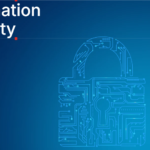Introduction
In a fast-changing digital environment, protecting enterprise data has become a core business responsibility, not just a technical task. For non-technical leaders, understanding Information Security Services is essential to making informed strategic decisions. These services form the foundation of trust, compliance, and business continuity in today’s interconnected global economy. Whether your company operates locally or partners across continents, effective information security can determine the success of digital transformation initiatives.
As technology evolves, so do cyber threats. From ransomware and phishing attacks to insider risks, the threat landscape is both diverse and sophisticated. This makes professional Information Security Services in USA and worldwide indispensable for enterprises that want to stay secure, compliant, and competitive.
Understanding Information Security Services
Information security services refer to the structured processes, tools, and strategies designed to safeguard digital assets, intellectual property, and sensitive data. They protect your IT systems from unauthorized access, misuse, or damage, ensuring the confidentiality, integrity, and availability of critical information.
These services often include:
- Risk Assessment and Management: Evaluating existing vulnerabilities and potential threats to prioritize security investments.
- Security Architecture Design: Building secure infrastructure that supports cloud adoption, remote work, and digital operations.
- Compliance and Governance: Ensuring adherence to industry standards such as ISO 27001, GDPR, HIPAA, or SOC 2.
- Incident Response Planning: Creating actionable playbooks to quickly detect, contain, and recover from breaches.
- Security Awareness Training: Empowering employees to identify threats and maintain responsible digital habits.
For large enterprises, these services are not one-size-fits-all. A reliable IT consulting partner tailors security measures to align with organizational goals, operational complexity, and regulatory obligations.
Why Information Security Matters to Business Leaders
Security is now a boardroom priority. Beyond IT performance, it affects brand reputation, financial stability, and customer loyalty. For non-technical executives, viewing security as an enabler of innovation rather than a barrier is key to sustaining growth.
Modern Information Security Services go beyond firewall protection. They integrate predictive analytics, automation, and AI-driven threat intelligence to stay ahead of evolving risks. By embedding security into the organization’s DNA, leaders can foster a proactive culture that strengthens resilience.
Key Business Benefits:
- Protects Brand Reputation: Customers trust companies that demonstrate strong data protection practices.
- Ensures Business Continuity: Effective security prevents costly downtime and loss of revenue.
- Drives Compliance Confidence: Meeting international standards reduces audit risks and enhances market credibility.
- Supports Scalable Growth: Secure foundations allow enterprises to expand safely into new markets or cloud ecosystems.
The Modern Approach to Information Security Services
Today’s enterprise security models have shifted from traditional perimeter defenses to integrated, adaptive frameworks. This transformation aligns security strategies with broader business objectives, ensuring that protection measures evolve alongside innovation.
Core Elements of a Modern Security Strategy:
- Zero Trust Framework: Assume no user or system is trustworthy by default, even within internal networks.
- Cloud Security Posture Management: Secure multi-cloud environments by monitoring configurations and access policies.
- AI-Driven Threat Detection: Leverage artificial intelligence to identify anomalies before they escalate.
- Automation and Orchestration: Enable faster response times and reduce manual workloads for security teams.
- Data Encryption and Identity Protection: Safeguard sensitive information across endpoints, devices, and applications.
For non-technical leaders, collaborating with a consulting partner who can translate these capabilities into measurable outcomes is invaluable. The right partner helps map technology to tangible business goals, ensuring every investment strengthens long-term resilience.
How to Choose the Right Security Partner
Selecting an information security service provider requires strategic evaluation. Business leaders should look for partners who combine technical depth with business insight.
When assessing providers, consider the following:
- Experience and Certifications: Look for proven expertise in delivering Information Security Services in USA or globally across regulated industries.
- Customized Security Strategy: Ensure solutions are tailored to your company’s size, maturity, and operational complexity.
- End-to-End Support: From assessment and implementation to ongoing monitoring and compliance management.
- Scalability: A partner capable of adapting to future technology and business growth.
- Transparent Communication: Clear reporting and regular updates to align technical actions with executive objectives.
A trusted consulting partner not only delivers security but also supports digital transformation by creating an environment where innovation can flourish safely.
Common Challenges for Non-Technical Leaders
Understanding the language of cybersecurity can be overwhelming. However, successful leaders focus on outcomes, not technical jargon. The goal is to translate complex technical insights into measurable business impacts.
Common challenges include:
- Overestimating Internal Capabilities: Assuming IT teams can handle all security functions without external expertise.
- Underfunding Security: Viewing security as an expense rather than a business enabler.
- Ignoring Human Factors: Many breaches originate from employee errors or lack of awareness.
- Failing to Align Security with Strategy: Security must complement business goals, not hinder them.
Addressing these issues begins with leadership awareness. The right Information Security Services partner helps bridge technical understanding with strategic priorities, creating a cohesive approach that drives both safety and growth.
Conclusion
Strong Information Security Services enable organizations to protect their data, maintain regulatory compliance, and drive innovation confidently. For non-technical leaders, partnering with experts simplifies complexity while ensuring security investments deliver measurable business value.
At Future Focus Infotech(FFI), we deliver forward-thinking digital solutions to fuel business transformation effectively. Our expertise enables organizations to drive change, fostering growth and efficiency in an ever-evolving digital landscape.
Frequently Asked Questions (FAQ);
Q1: What is the main purpose of Information Security Services?
Information Security Services protect digital assets from unauthorized access, ensuring data confidentiality, integrity, and availability.
Q2: How are Information Security Services different from IT support?
IT support focuses on operational performance, while Information Security Services emphasize risk management, compliance, and data protection.
Q3: Do small and mid-sized enterprises need Information Security Services?
Yes. Cyber threats affect businesses of all sizes, and scalable security solutions can be tailored to fit different organizational needs.
Q4: How can non-technical leaders evaluate their security posture?
Through professional assessments and consulting services that translate technical insights into business-level metrics and risk scores.

